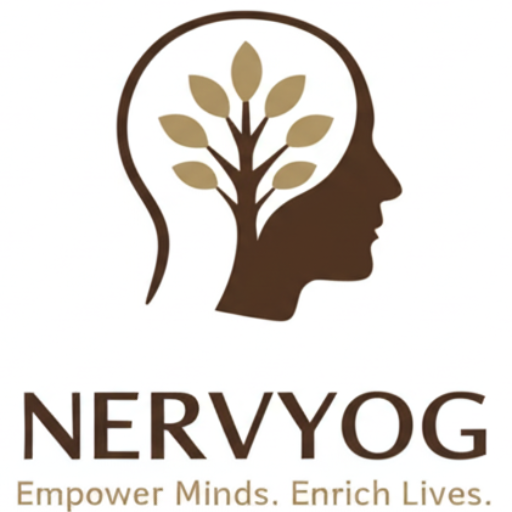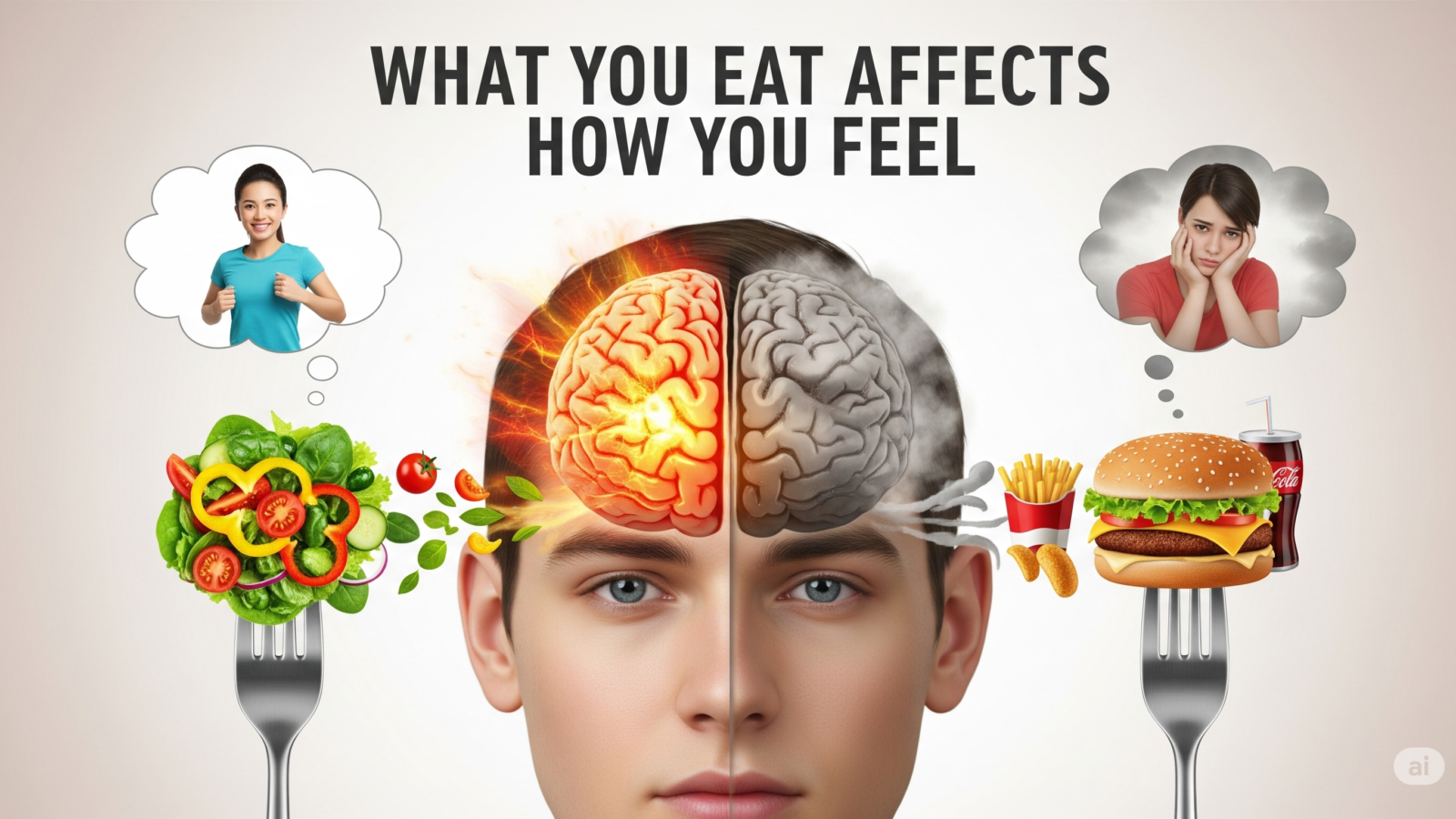Did you know that eating too much junk food can make you feel sad, anxious, or stressed? Studies show that adults who eat more processed and sugary foods have a higher chance of depression and mental health problems.
Let’s explore how food affects your mind—and how small changes can make a big difference.
🚫 Popular Junk Foods That Harm Mental Health
Fast food: McDonald’s, KFC, Taco Bell, pizza, burgers, momos
Street food: Pani puri, chaat, samosas (especially deep-fried)
Packaged snacks: Kurkure, chips, namkeen, Doritos, cookies
Sweets: Mithai, chocolates, ice cream, donuts, pastries
Drinks: Cold drinks, packaged juices, soda, energy drinks, flavored coffee
Frozen foods: TV dinners, frozen pizza
⚠️ When Junk Food Makes Mental Health Worse
Festival overeating: Too many sweets during Diwali or Holi can cause mood swings
Work stress: Eating chips or biscuits while working increases anxiety
Exam pressure: Students eating Maggi and chips during stress may feel more depressed
Family gatherings: Heavy, oily meals can leave you feeling tired and low
✅ Healthy Alternatives That Support Your Mind
Simple swaps can boost your mood and digestion:
| Junk Food | Healthy Swap |
|---|---|
| Chips | Roasted chana or makhana |
| Packaged sweets | Homemade laddu |
| Cold drinks | Nimbu paani |
| Instant noodles | Dal-chawal |
| Biscuits | Banana or apple |
| Ice cream | Greek yogurt |
| Chips (again!) | Nuts and berries |
| Energy drinks | Green tea |
🧠 How Junk Food Hurts Your Mental Health
Here’s what the research says:
- Higher risk of depression & anxiety: People who eat fast food often have a 51% higher chance of depression
- Mood swings & irritability: Sugary foods cause energy crashes and emotional ups and downs
- Brain chemistry imbalance: Junk food affects dopamine and serotonin—chemicals that control mood
- Inflammation: Processed foods trigger inflammation, which is linked to anxiety and depression
- Gut-brain disruption: Junk food harms your gut bacteria, which affects your brain and emotions
🧬 The Gut-Brain Connection: Your Inner Mood Manager
Your gut and brain talk to each other all the time. When your digestion is poor, your mood suffers too.
- Your gut has trillions of microbes that help make serotonin and GABA—feel-good chemicals
- 90% of serotonin is made in the gut, not the brain
- Stress and trauma can inflame the gut and slow digestion
- A troubled gut sends distress signals to the brain, and vice versa
🌿 Holistic Tips for Better Digestion & Mental Health
Try these simple practices to feel better inside and out:
- Mindful eating: Eat slowly, chew well, and stay calm while eating
- Probiotics & prebiotics: Include yogurt and fiber-rich veggies
- Stress relief: Practice meditation, breathwork, or gentle movement like yoga
- Therapy & coaching: Get support to heal emotional roots of digestive issues
🕉️ Food as Prasad: Nourishment for Body, Mind & Spirit
In Indian wisdom, food is sacred. A very common saying “Jaisa khayoge ann, waise banega mann” means: what you eat shapes your thoughts and emotions.
- Food carries energy—its source, preparation, and intention matter
- Eating with gratitude uplifts your mood; eating in stress can disturb it
- Western science agrees: whole foods support serotonin and dopamine, while processed foods increase anxiety
Mindful and conscious eating is not just a wellness trend—it’s a spiritual practice.


Add a Comment